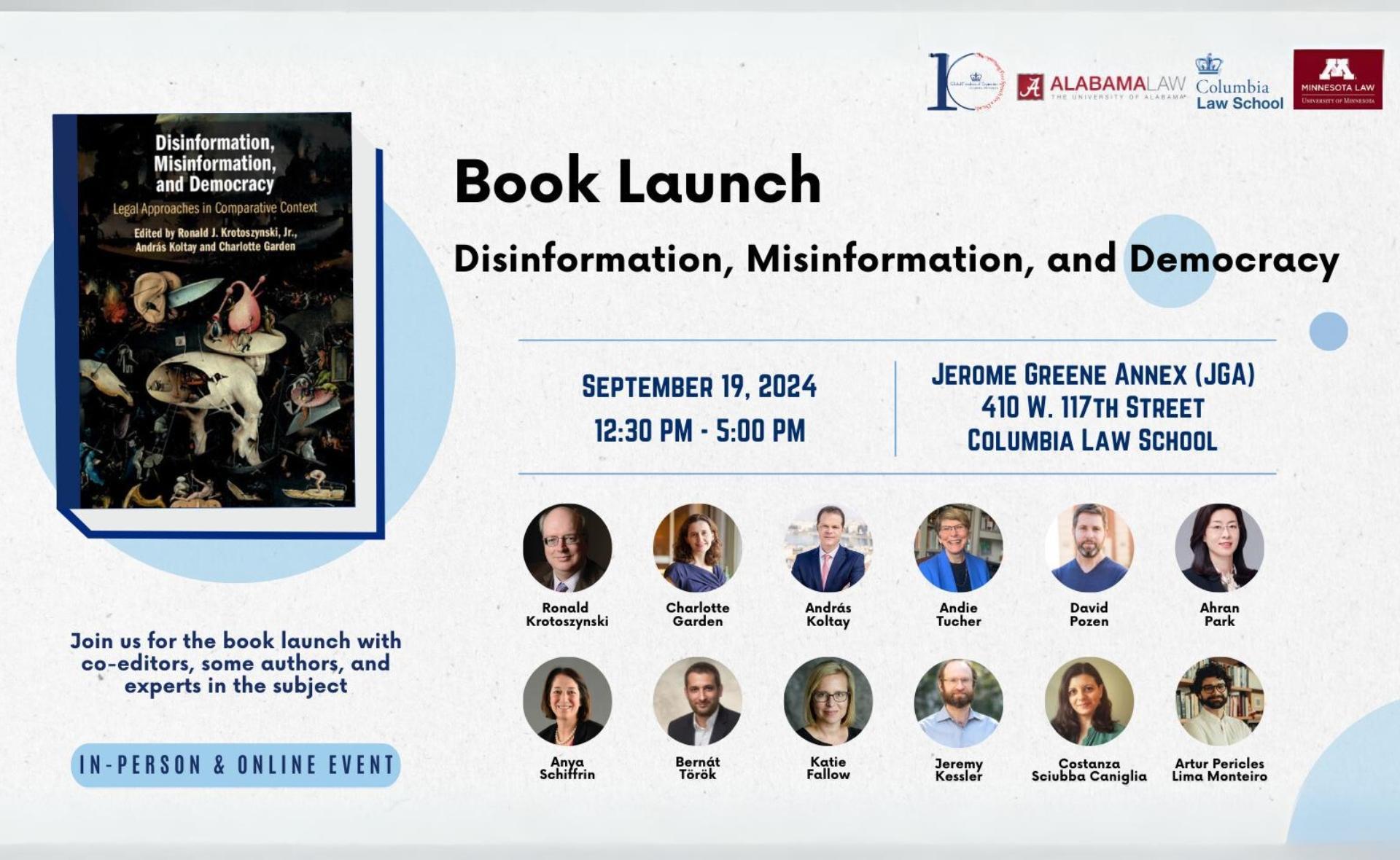Organized the Columbia University Law School, the University of Alabama School of Law and the University of Minnesota an exciting book launch will take place on September 19, between 12:30PM and 5PM at the Columbia Law School in New York showcasing the volume "Disinformation, Misinformation, and Democracy".
At three thematic sessions – I. Framing the Problem, II. National and Transnational Regulatory Approaches, and III. Social Groups and Institutions, Outside Government – our speakers will focus on solutions to the disinformation and misinformation challenges from multiple angles and actors: government regulation, media self-regulation, and the role of civil society.
Hungarian key note speakers include Bernát Török, volume contributor and Director at the Institute of the Information Society, Ludovika University of Public Service and András Koltay volume co-editor and Professor, University of Public Service and the Pázmány Péter Catholic University.
The event can also be followed online.

About the book
As the US presidential election approaches and half of the world’s population heads to the polls in this “super-election year” of 2024, “Disinformation, Misinformation, and Democracy: Legal Approaches in Comparative Context” explores the global threat to democracy posed by false information through a comparative legal analysis. Published by Cambridge University Press, the book – a volume that brings together contributions of legal scholars from around the world – was edited by Ronald J. Krotoszynski, Jr. of University of Alabama, András Koltay of Ludovika – University of Public Service (Hungary), and Charlotte Garden of University of Minnesota.
“Disinformation, Misinformation, and Democracy” is a collective attempt to counter the spread of disinformation (intentionally false information) and misinformation (unintentionally false information disseminated in good faith). Both have proven effective in manipulating voters far beyond the US, and the volume’s editors and contributors ask: How can we best address this problem? Through a comparative lens, the book offers novel insights into methods – ranging from national regulation of politicians’ speech to empowering civil society groups – and provides solutions-oriented recommendations for policymakers, judges, legal practitioners, and scholars.
